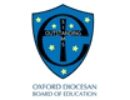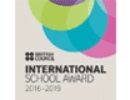RE
What does RE look like?
Intent
At Brill, we believe that it is important for all our pupils to learn about religions and in turn, learn from them, so that they have a deeper understanding of the world around them. The aim of RE at Brill is to help our children to acquire and develop the knowledge and understanding of Christianity and other world religions that are represented in Great Britain and across the world. We also hope that the children at Brill learn to appreciate the way that religious beliefs shape life and develop their abilities to make reasoned and informed judgements about religious and moral issues to enhance their cultural development. Religious Education is taught from Year R through to Year 6 where the children are able to reflect on the aims and values of each religion.
RE plays and important role in promoting social awareness and understanding in our children. We encourage our children to ask questions about the world and think deeper about their own beliefs, values and experiences. We want our children to enjoy RE and develop resilient responses to misunderstandings, stereotyping and division. We want to offer the children a place where difficult or ‘risky’ questions can be tackled within a safe but challenging context.
Implementation
The Discovery RE Scheme is used throughout the school which follows a format of Engagement, Investigation, Evaluation and Expression. Children begin using their own experiences to understand the concept they are learning about. They then begin to move into a deeper investigation of the concept from the point of view of the chosen religion. Teachers are able to adapt and enrich the curriculum to support and challenge the children.
In each year group, the children study Christianity for 50% of the year and another world religion for the remaining 50%. Each year the children delve into a different world religion. Through Discovery RE, the exploration of Christianity plus one other religion per year group means both religions have multiple enquiries (6 weeks per unit). This ensures that the children revisit prior learning for both religions throughout the year, to build on the previous enquiries. Some key enquiries are built on year-on-year such as Easter and Christmas.
- Year 1: Christianity & Judaism
- Year 2: Christianity & Islam
- Year 3: Christianity & Hinduism
- Year 4: Christianity & Buddhism
- Year 5: Christianity & Sikhism
- Year 6: Christianity & Islam
Impact
Children at Brill engage in hourly RE lessons weekly, deepening their understanding of religious beliefs and the world around them. The children at Brill are able to link their learning across the religions and within their own lives. They are then able to identify similarities in their moral and ethical views. Children are able to discuss their own viewpoints and express confidently what they believe in. Our children develop their own curiosities for the world around them, along with a sense of open-mindedness and respect for everyone.
RE at Brill develops positive attitudes towards those from other faiths and religions and demonstrates an understanding and acceptance of their cultural beliefs. Children are able to reflect on their own journeys with faith and spirituality to form their own beliefs.
“The purpose of all the major religious traditions is not to construct big temples on the outside, but to create temples of goodness and compassion inside, in our hearts.”
Dalai Lama
RE is a statutory subject, distinct from our Church of England status.
At Brill School RE creates an enriched culture, providing opportunities and challenges for pupils to develop deeper thinking. It enriches the children’s life skills explored in PSHE. It also enables pupils to develop transferable skills such as listening, effective communication and reflection.
Building confidence in a nurturing environment so that each child is confident to engage in difficult questions enables our children to thrive as they move up to secondary school and become part of a more diverse environment.
We ask big questions’ starting from the children’s perspective, extending to our school experience and then deepening our knowledge through Christianity around the world and other world religions. These questions explore how different people respond to life’s key events and ways of making a difference in our lives.
We learn about the beliefs, stories and traditions from Christianity, Judaism, Hinduism, Islam and Buddhism and include non-religious viewpoints.
Some big questions overlap with PSHE, Literacy work, Humanities and the Creative Curriculum.
Importantly children learn to reflect on what they think and to respect different views.
We enrich the learning in school with trips to Brill Church, Bayeux cathedral on our French Trip, a Hindu temple in London and the Oxford Synagogue.
Children are encouraged to make links between school values and RE in reflective areas of the classroom. We enrich our ability to reflect in Prayer Space – a reflective interactive week.
“It let me relax and think about nature and all the things God made in this world.” Pupil voice.
Children develop their sense of wonder through changing seasons in the beautiful natural surroundings of Forest School.
Brill pupils’ view of RE is a positive one; they feel secure enough within a nurturing environment to engage and express themselves fully in lessons, regardless of ability. Pupils gain self-confidence and develop a thirst for learning to enable them to reach their potential. Assessment within RE encompasses many of the life skills we aim to give a Brill Child.
The Oxford Diocesan Scheme of work ensures a progression of learning.
|
|
year-1.pdf
|
|
|
year-2.pdf
|
|
|
year-3.pdf
|
|
|
year-4.pdf
|
|
|
year-5.pdf
|
|
|
year-6.pdf
|
|
|
year-r.pdf
|
Doc Store block is missing files







